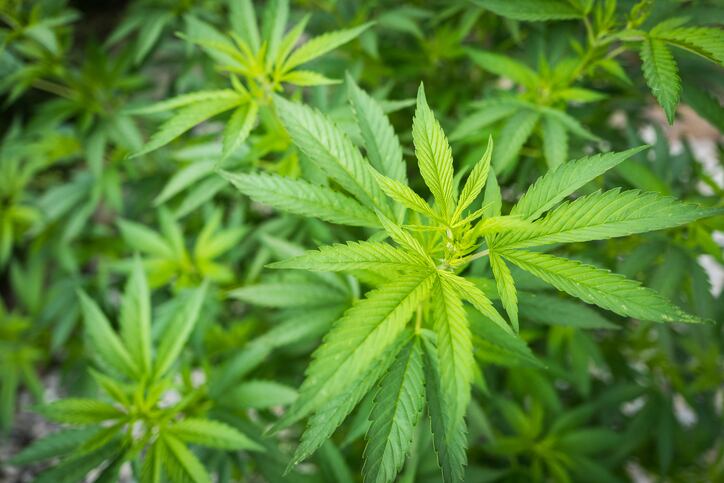Public health agencies worldwide have identified antibiotic resistance of disease-causing bacteria as one of humanity's most critical challenges. However, scientists haven't discovered a new class of antibiotics in more than 30 years.
Now, researchers reporting in ACS Infectious Diseases, have discovered that mice infected with methicillin-resistant Staphylococcus aureus (MRSA), one of the most common and deadly bacteria, could be nursed back to health with a non-psychoactive element of cannabis known as cannabigerol (CBG).
Early studies have shown that some cannabinoids can slow the growth of gram-positive bacteria, such as S. aureus, but not gram-negative bacteria, such as E. coli.
Eric Brown, a microbiologist at the department of biochemistry and biomedical sciences at McMaster University in Canada led the new research to test the antibacterial properties of several cannabinoids against both MRSA and gram-negative bacteria.
The study tested the antibacterial activity of 18 cannabis-derived molecules, including cannabidiol (CBD), tetrahydrocannabinol (THC) and CBG, against MRSA. The team also tested the ability of these substances to prevent the formation of biofilms on surfaces and to kill dormant "persistor" MRSA that are highly resistant to antibiotics.
CBG performed the best in these tests, so the researchers chose to study it further.
When they treated MRSA-infected mice with CBG, the compound worked as well as a powerful antibiotic.
The researchers discovered that CBG targets the cell membrane of gram-positive bacteria, and by itself, it is not effective against gram-negative bacteria, which have an additional outer membrane. However, they found that if they gave CBG with another drug that pokes holes in this outer membrane, CBG could reach the inner membrane and kill gram-negative bacteria.
The research was supported by collaborator Jakob Magolan, a McMaster associate professor of biochemistry and biomedical sciences who specialises in drug development using organic synthetic chemistry.
However, this research only reveals potential as opposed to a final solution. The team found that in extremely high doses, CBG could damage healthy human cells. Additionally, the substance was only tested against MRSA in mice so it's unclear if it would have the same results in humans.
Brown says the next step is to reduce the toxicity of the CBG compound, possibly by combining it with another substance
Source: ACS Infectious Diseases
Brown. E., et al
"Uncovering the Hidden Antibiotic Potential of Cannabis"


